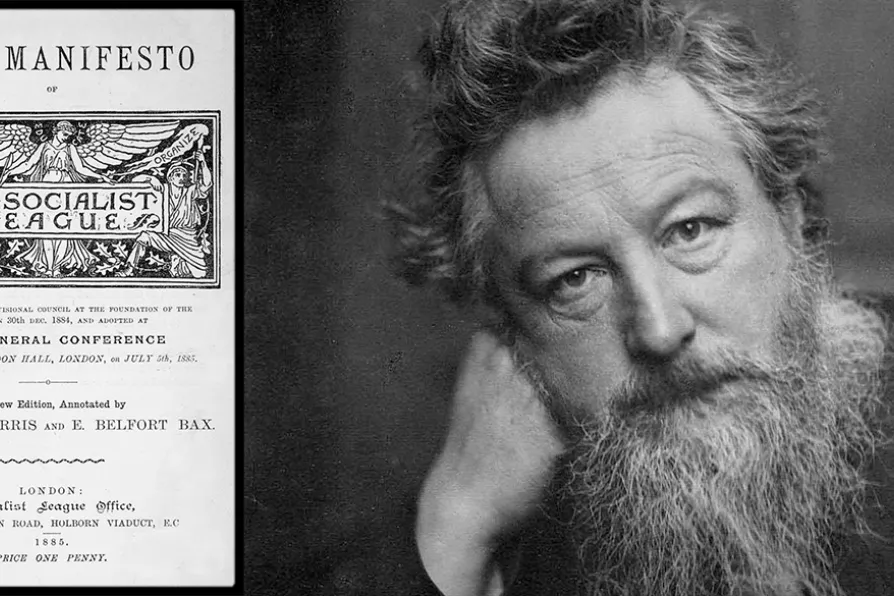ALEX HALL interviews PAUL HOLDEN, whose bombshell book uses leaked documents to expose how the Starmer faction used systematic dishonesty to seize power and reopen the door to the corrupting ecosystem of corporate lobbying and sleaze

 William Morris (right) with the Socialist League manifesto (right)
William Morris (right) with the Socialist League manifesto (right)
A CENTURY and a half ago, William Morris published an epic which established his reputation as one of the foremost poets of his day.
The Earthly Paradise is essentially a collection of ancient myths and legends drawn from classical mythology or medieval and Icelandic sagas, retold by a group of Norsemen who have fled a plague, setting sail in search of a land of everlasting life “where none grow old.”
They don’t find it but, returning “shrivelled, bent and grey,” they are welcomed into a “nameless city in a distant sea” where they spend the rest of their lives, swapping tales with their hosts.

From hunting rare pamphlets at book sales to online panels and courses on trade unionism and class politics, the MML continues connecting archive treasures with the movements fighting for a better world, writes director MEIRIAN JUMP














